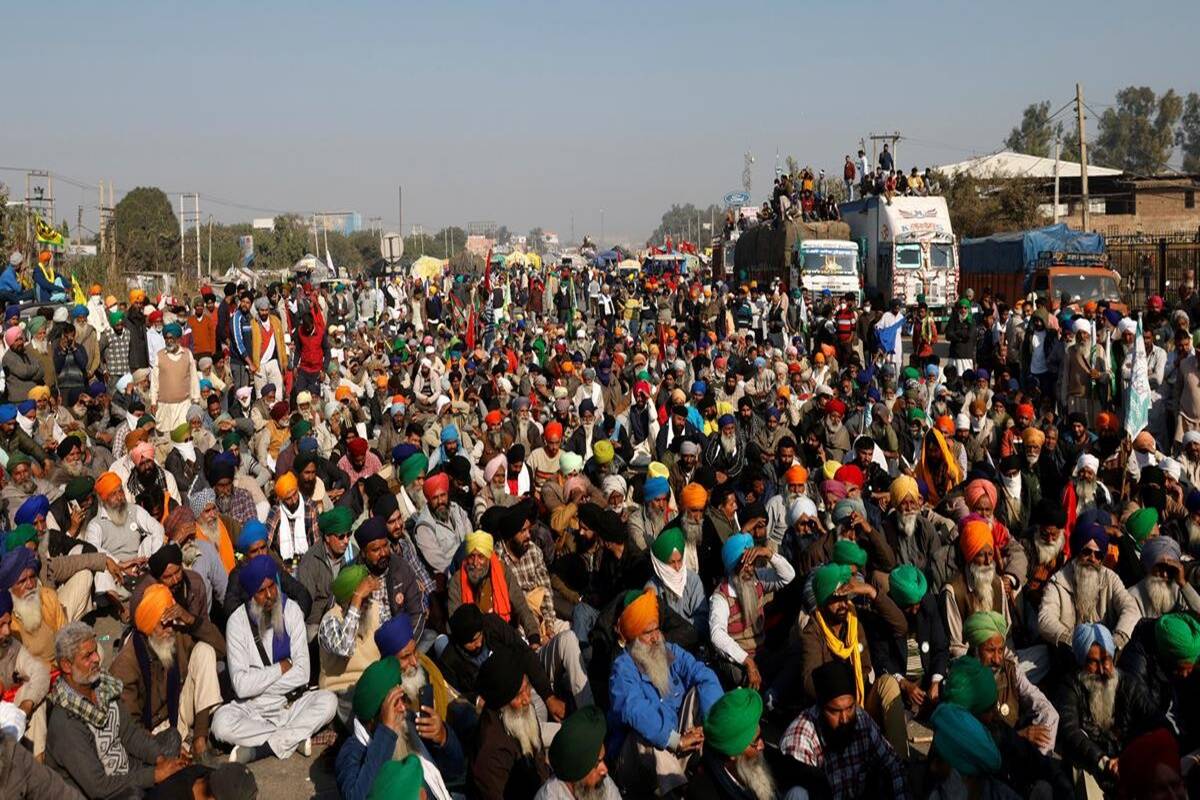
Farmers Propose ‘Tractor Parade’ on the Republic Day if Demands not Settled
Manas Dasgupta
NEW DELHI, Jan 2: With very little prospect of breaking the stalemate during the seventh round of talks on Monday considering the hardening of attitude on both the sides-the agitating farmers and the central government, the protesters have threatened to break into Delhi on January 26 to launch a “Republic Day Tractor Parade” on the streets of the national capital.
“It will be called ‘Kisan Parade’ carrying the national flag and will be held after the official Republic Day parade on the capital’s Rajpath is over,” leaders of the Samyukta Kisan Morcha, a platform of farm unions, announced on Saturday giving the centre a long rope to concede their demands for the repeal of the three contentious farm laws and legalisation of the Minimum Support Price (MSP) for all the major crops.
Addressing a press conference at the Delhi Press Club, the first in the capital since the agitation began more than 35 days ago, a seven-member team that is coordinating the protests, pointed out that giving the centre time till January 26 did not mean that the famers would sit quiet in the next 24 days. Spelling out a fresh agitation agenda spanning 15 days from Jan 6, the leaders said it would include picketing Raj Bhavans in various states, onward marches from six blockade sites on Delhi’s borders and a “rehearsal” for the Jan 26 tractor parade.
The farm leaders said they would wait for the outcome of January 4 talks with the government and the Supreme Court’s hearing on January 5 on a clutch of petitions related to the three farm laws.
“This is our ultimatum. If all issues are not resolved and our demands are not met by Republic Day, then we will start entering Delhi,” the political activist Yogendra Yadav said. “Tractors from all neighbouring states will begin rolling into Delhi if matters are not resolved. Contingents from all current blockade sites will start moving. We will continue with our blockade of goods and services of Ambani (Reliance group) and Adani (group), including their products, malls and petrol pumps,” Darshan Pal, a senior farm union leader said.
With the British prime minister Boris Johnson scheduled to be in Delhi to be the chief guest at the Republic Day parade, the Kisan Parade could become an embarrassment for the Narendra Modi government since Johnson at the prodding of some India-origin British leaders had supported the farmers agitation.
“The government is saying that 50% of the demands have been met. But the government has shown no signs of meeting our biggest demands,” said Yogendra Yadav.
The leaders slammed what they called the government’s propaganda. “The government doesn’t want to withdraw the laws because it has become an ego issue for them. They have tried to tarnish our agitation in countless ways, sometimes calling us Maoists and Khalistani (a reference to Sikh separatists),” Balbir Singh Rajewal said.
Asked what the farm unions would do if the Supreme Court were to uphold the validity of the laws, he said: “We are not a party to the case. But we will take a decision at an appropriate time.”
“We were peaceful, are peaceful and will be peaceful, but will stay at Delhi borders until new farm laws are repealed,” the leaders said.
Another farmer leader, Gurnam Singh Choduni, said, “In our last meeting, we posed a question to the government that will you buy 23 crops on MSP. They said ‘no’. Then why are you misinforming the people of the country?” “So far, over 50 farmers have been “martyred” during our agitation,” he said.
Addressing a press conference at the Singhu border protest site, representatives of farmer unions said only five per cent of the issues raised by them have so far been discussed in meetings with the government. The government’s claim of having settled 50 per cent of the demands was a “Plain lie,” the leaders said.
Braving the cold, thousands of farmers, mainly from Punjab and Haryana, are protesting at various borders of the National Capital for more than a month against these three new laws.
The government has presented these laws as major agriculture reforms aimed at helping farmers and increasing their income, but the protesting unions fear that the new legislations have left them at the mercy of big corporates by weakening the MSP and mandi systems.











